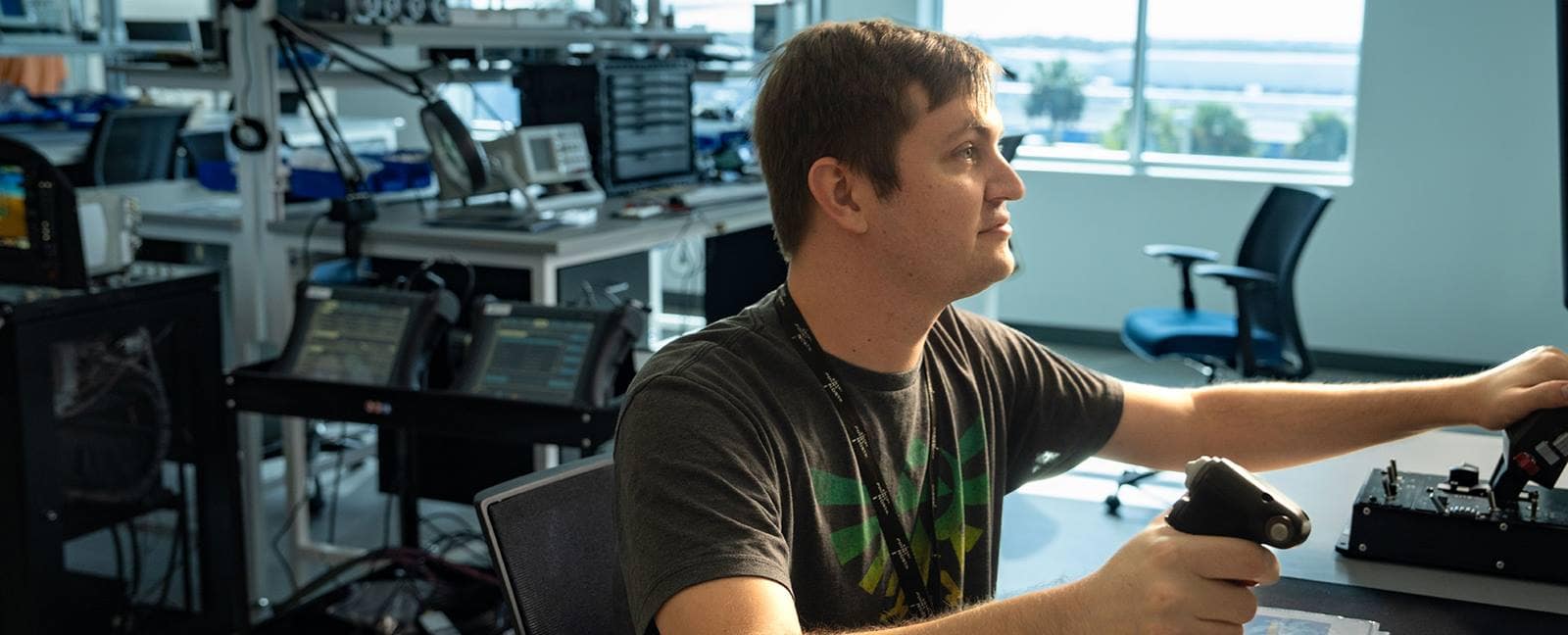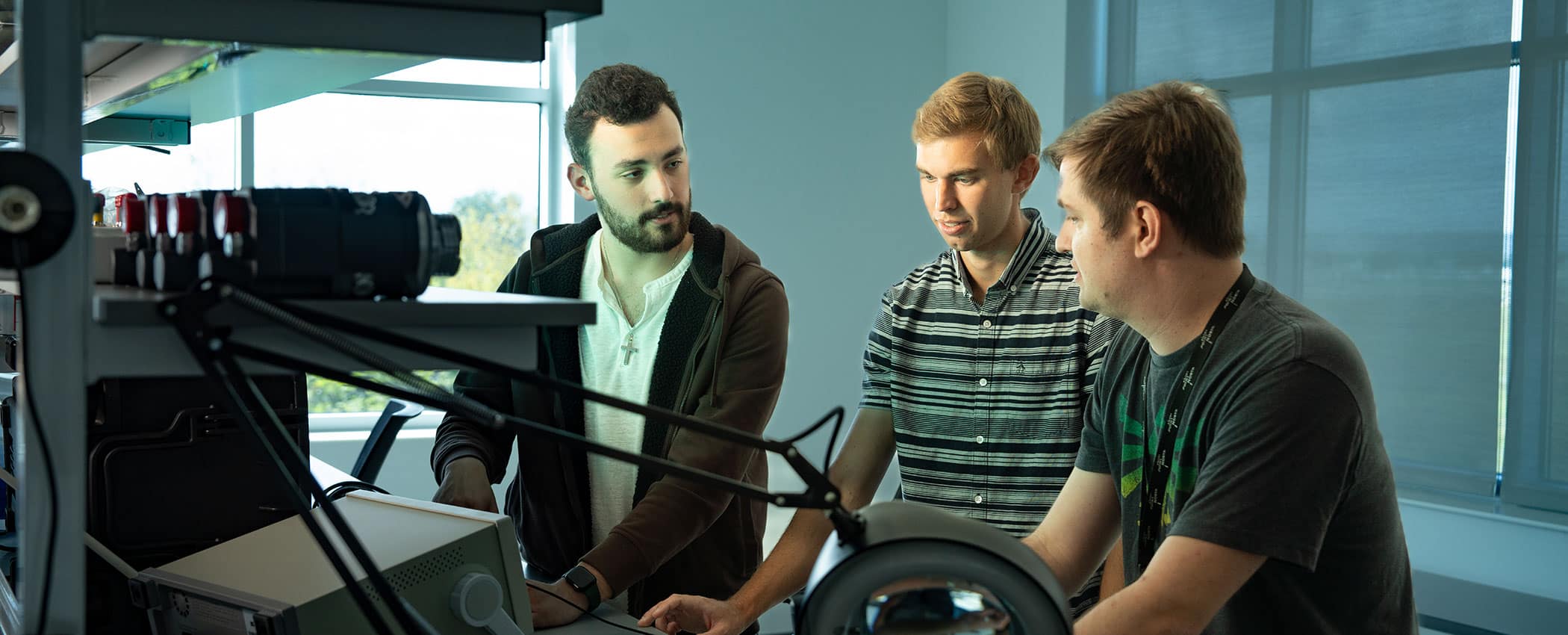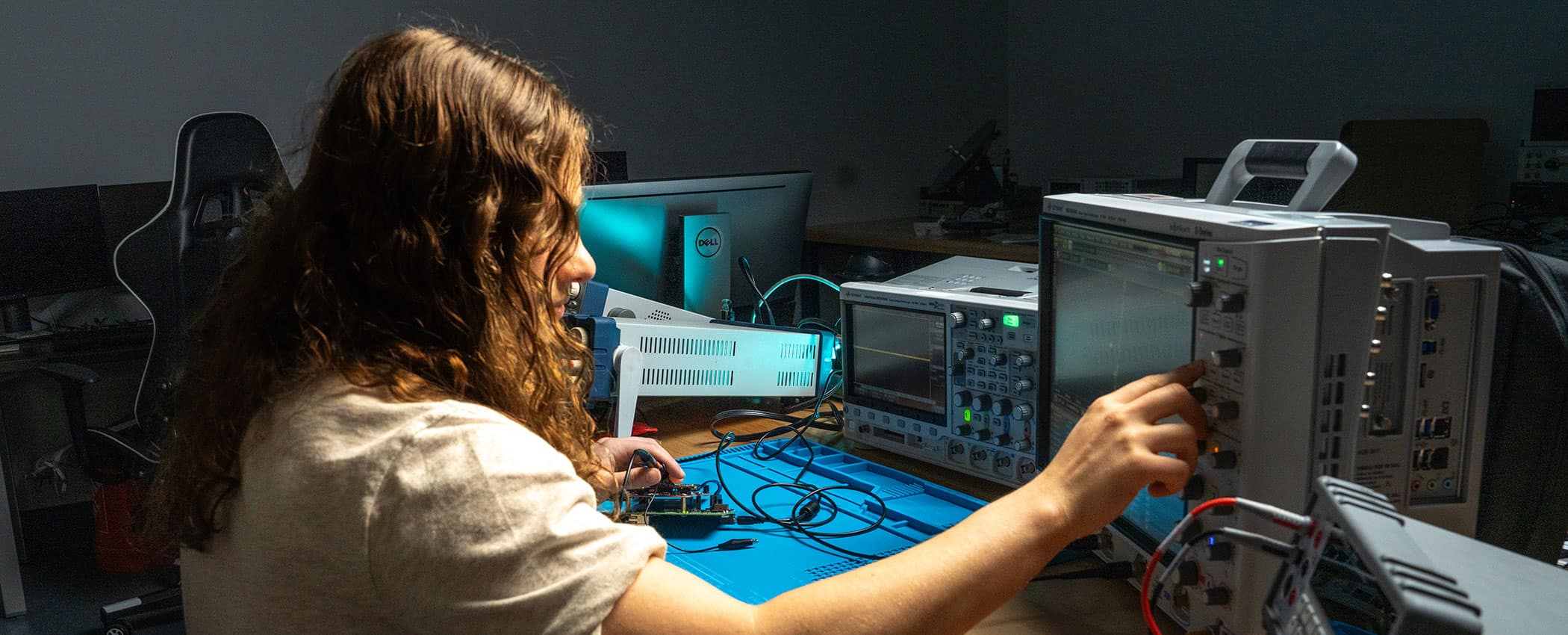
Master of Science in
Cybersecurity Engineering
The Master of Science in Cybersecurity Engineering enhances cybersecurity careers in developing and maintaining secure networked systems.
About the Master of Science in Cybersecurity Engineering
Cybersecurity engineering careers are on the rise in both public and private sectors worldwide, ranging in everything from cybersecurity policy to secure systems design and operations. A Master of Science in Cybersecurity Engineering from Embry‑Riddle prepares graduates to either begin or further advance their careers in the field of cybersecurity.
The Electrical Engineering and Computer Science’s (EECS) Industry Advisory Board ensures that curriculum and research activities are aligned with what’s going on in the cyberspace engineering industry. The accelerated program is a cutting-edge degree in a dynamic, growing field.
Student Learning Outcomes
What you will learn while pursuing a Cybersecurity Engineering degree:
- Apply fundamental cybersecurity engineering professional practices to analyze, design and implement security-critical systems.
- Apply knowledge of advanced topics in cybersecurity engineering.
- Communicate effectively on issues pertaining to cybersecurity.
Cybersecurity Engineering Career Opportunities
Careers and Employers
Cybersecurity Engineering master's graduates often secure positions such as cybersecurity engineers, information security analysts, malware analysts, digital forensics investigators and cybersecurity consultants.
Cybersecurity Engineering Salary Information
As of 2023, graduates with a degree in Cybersecurity Engineering receive competitive salaries, with an average income of $150,052 annually.
DETAILS
About Cybersecurity Engineering at the Daytona Beach, FL Campus
Housed in the Electrical Engineering and Computer Science Department in the College of Engineering, the Master of Science in Cybersecurity Engineering prepares students to address challenges in the development of secure systems design as well as maintaining secure operations and cybersecurity policy.
The Daytona Beach Campus is home to the Cybersecurity Engineering Laboratory (CybEL), a Real-Time Systems Laboratory, a Digital Systems Laboratory and a Software Development Laboratory, all of which offer students systems design and hands-on experience as it relates to cybersecurity attacks and corresponding mitigations.
Cybersecurity Engineering Information
- Credits: 30
- Online or In-Person: In-Person
- Thesis: Thesis, Capstone Project & Coursework Options
Helpful Links
- Tour Our Daytona Beach Campus
- Discover the Department's Faculty
- Explore the Fields of Study: Engineering; Computers & Technology; and Security, Intelligence and Safety
- Find Related Clubs & Organizations
Degree Requirements
The master degree in Master of Science in Cybersecurity Engineering is granted to students who complete the course work described below. The program consists of 18 credits of core courses and 12 credits of advisor-approved electives. The electives can be completed in one of three modes:
-
All courses: 12 credits of advisory-approved electives;
-
Courses plus a one-semester capstone: Nine credits of advisory-approved electives, plus the one-semester capstone project leading to a conference paper or technical report equivalent;
-
Courses plus a six-credit thesis: Six credits of advisor-approved electives, plus a six-credit research thesis by publication based on a journal paper, multiple conference papers, or technical report equivalents.
Program Core Requirements
| CS 527 | System Exploitation and Penetration Testing | 3 |
| CS 529 | Computer Security | 3 |
| CS 532 | Software Security Assessment | 3 |
| CS 538 | Applied Cryptography | 3 |
| SE 500 | Software Engineering Discipline | 3 |
| SYS 505 | System Safety and Certification | 3 |
| Total Credits | 18 | |
Thesis Option
| Program Core | 18 | |
| Open Electives | 6 | |
| CS 700 | Graduate Thesis | 1-6 |
| Total Credits | 25-30 | |
Non-Thesis: Capstone Project Option
| Program Core | 18 | |
| Open Electives | 9 | |
| CS 690 | Cybersecurity Engineering Capstone Project | 3 |
| Total Credits | 30 | |
Non-Thesis: Course Only Option
| Program Core | 18 | |
| Open Electives | 12 | |
| Total Credits | 30 | |
Get Started Now:
Summary
30 Credits
Estimate your tuition by using the Tuition Calculator
View Financial Aid Information
Learn about our General Education
Find out about transferring credits to this degree
Learn more about our Veterans & Military benefits
View our Academic Calendar




